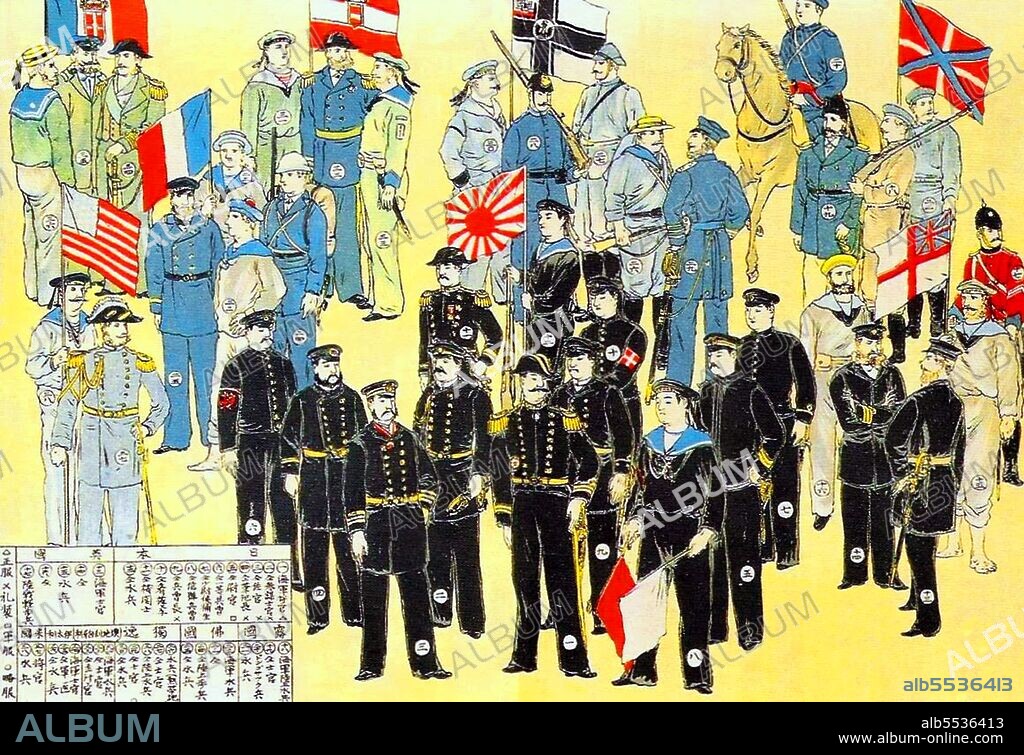alb5536413
China: Military of the Eight-Nation Alliance during the Boxer Rebellion represented in a Japanese print,1900. Left to right: Italy, United States, France, Austria-Hungary, Japan, Germany, Great Britain, Russia

|
Añadir a otro lightbox |
|
Añadir a otro lightbox |



¿Ya tienes cuenta? Iniciar sesión
¿No tienes cuenta? Regístrate
Compra esta imagen

Título:
China: Military of the Eight-Nation Alliance during the Boxer Rebellion represented in a Japanese print,1900. Left to right: Italy, United States, France, Austria-Hungary, Japan, Germany, Great Britain, Russia
Descripción:
Ver traducción automática
The Eight-Nation Alliance was an alliance of Austria-Hungary, France, Germany, Italy, Japan, Russia, the United Kingdom and the United States, whose military forces intervened in China during the Boxer Uprising and relieved the siege of diplomatic legations in Peking (Beijing) in the summer of 1900. The Boxer Rebellion, also known as Boxer Uprising or Yihetuan Movement, was a proto-nationalist movement by the Righteous Harmony Society in China between 1898 and 1901, opposing foreign imperialism and Christianity. The uprising took place in response to foreign spheres of influence in China, with grievances ranging from opium traders, political invasion, economic manipulation, to missionary evangelism. In China, popular sentiment remained resistant to foreign influences, and anger rose over the 'unequal treaties', which the weak Qing state could not resist. Concerns grew that missionaries and Chinese Christians could use this decline to their advantage, appropriating lands and property of unwilling Chinese peasants to give to the church. This sentiment resulted in violent revolts against foreign interests.
Crédito:
Album / Pictures From History/Universal Images Group
Autorizaciones:
Modelo: No - Propiedad: No
¿Preguntas relacionadas con los derechos?
¿Preguntas relacionadas con los derechos?
Tamaño imagen:
5000 x 3427 px | 49.0 MB
Tamaño impresión:
42.3 x 29.0 cm | 16.7 x 11.4 in (300 dpi)
Palabras clave:
 Pinterest
Pinterest Twitter
Twitter Facebook
Facebook Copiar enlace
Copiar enlace Email
Email
